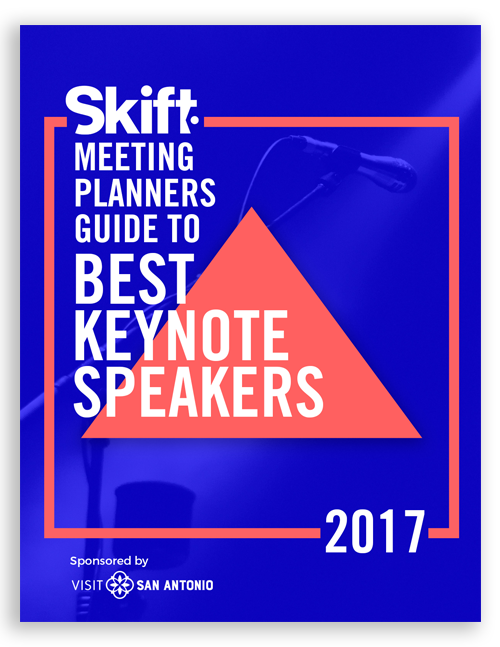Meetings and events are big business. The event-planning organization Meeting Professionals International recently estimated there are around 1.8 million meetings and events annually in the US, contributing close to $280 billion to the U.S. economy. But with so much riding on such events, and with a growing range of conference options for attendees to choose from, it’s becoming all the more important for event organizers to stand out from the crowd.
While there’s any number of methods to differentiate event programming and content, picking the right event speakers is an increasingly critical component. Great speakers can make or break an event; help boost ticket sales, create positive press coverage, generate social media mentions and set the right mood for attendees and key stakeholders. And in an era increasingly dominated by digital media, speakers offer an element of community and human-driven connection that no video or slideshow can match. “We are social creatures, and while we can get information from books or websites, we get inspiration and social relevance and a sense of community from other humans," noted Katrina Smith, agent and president of Keynote Speakers, a professional speakers bureau.
But even as great speakers are becoming more important to hosting great events, selecting these individuals is growing complicated. Thanks to a growing range of factors, including the increasing importance of social media at live events, a new crop of younger, media-savvy attendees, and rising guest expectations created by cutting-edge events like SXSW and TED, meeting owners and planners are searching for higher-quality speakers and scrambling for new methods and criteria to gauge the effectiveness of people delivering their message.
With all of these new elements in play and serious money riding on the success of events, how can meeting planners make sure they identify the the smartest, most innovative and most compelling speakers? Is it enough to simply go for the big A-list celebrity names? How much should speaker selection criteria like pop-culture, event planning committees, or attendee input factor into the selection of event presenters?
We are social creatures, and while we can get information from books or websites, we get inspiration and social relevance and a sense of community from other humans.”
- Katrina Smith, President, Speakers Bureau, Inc.
